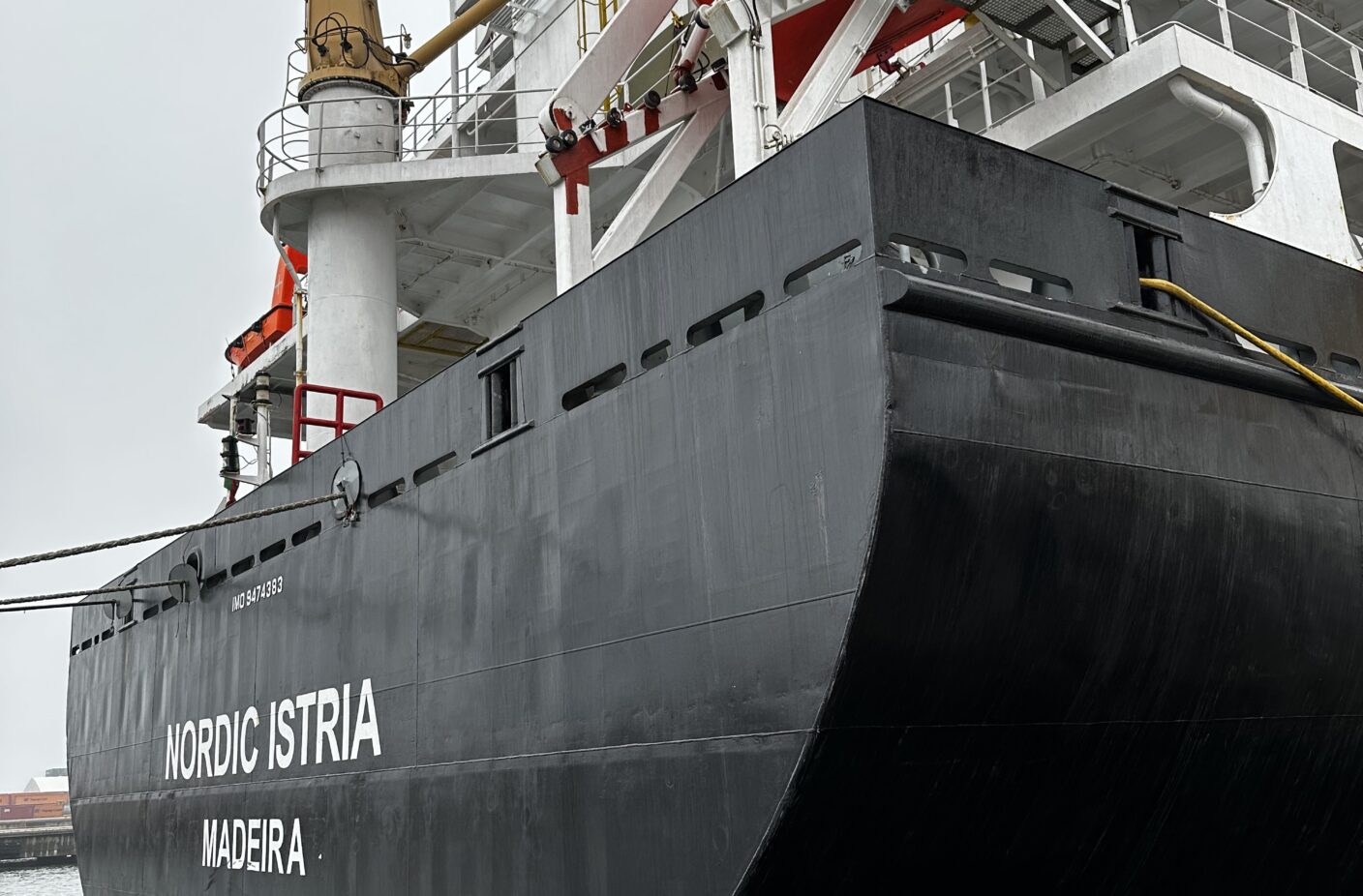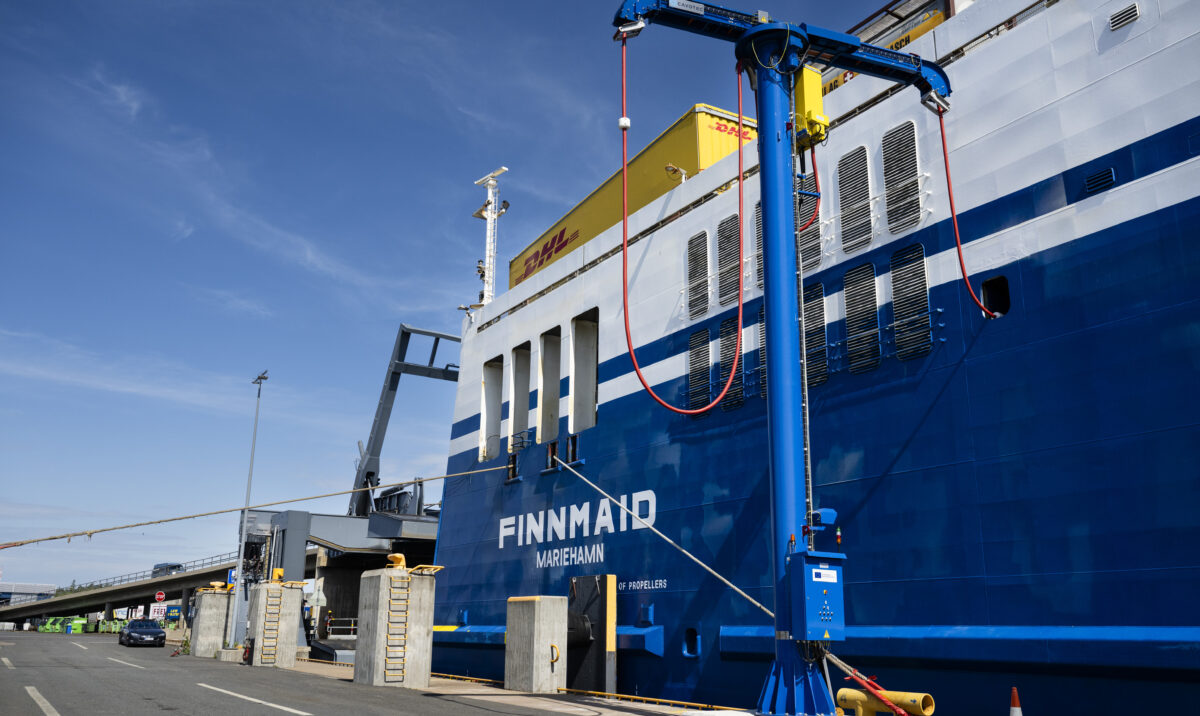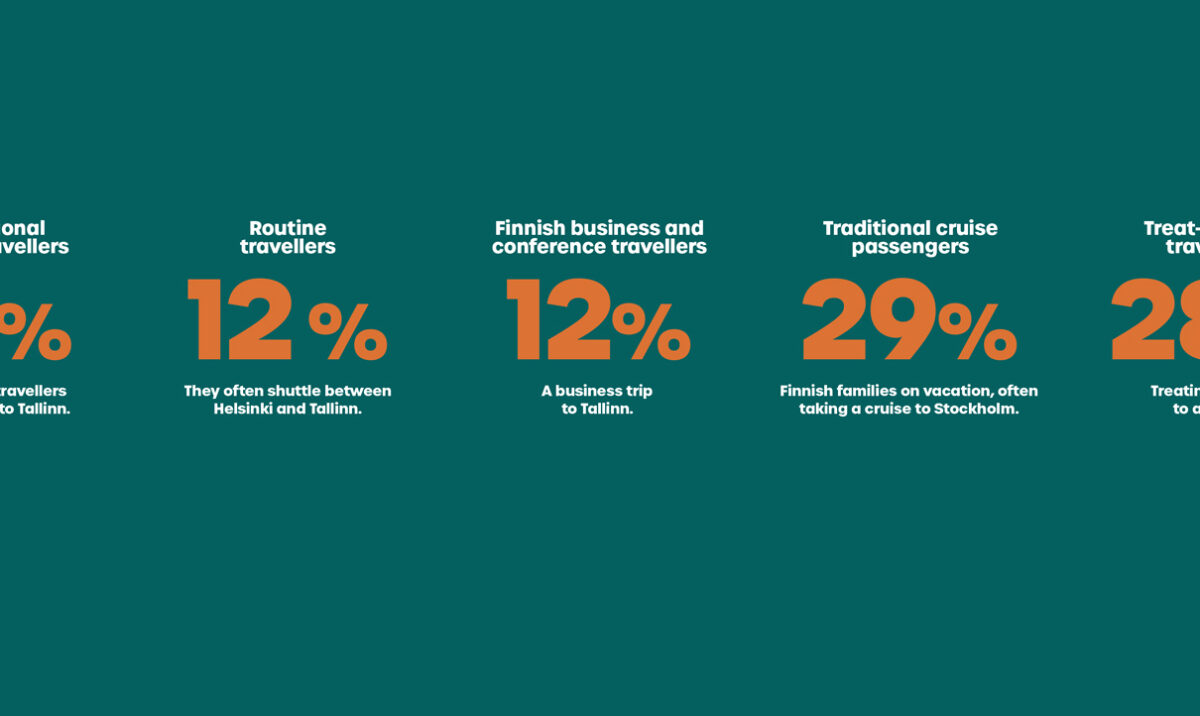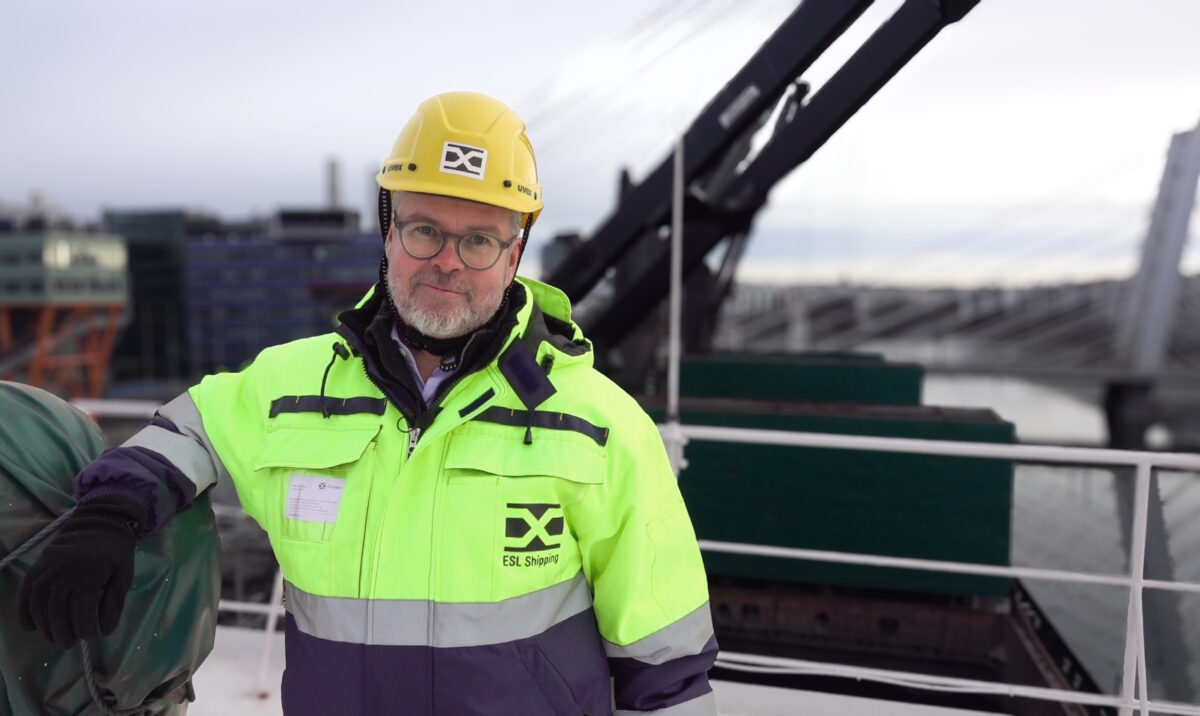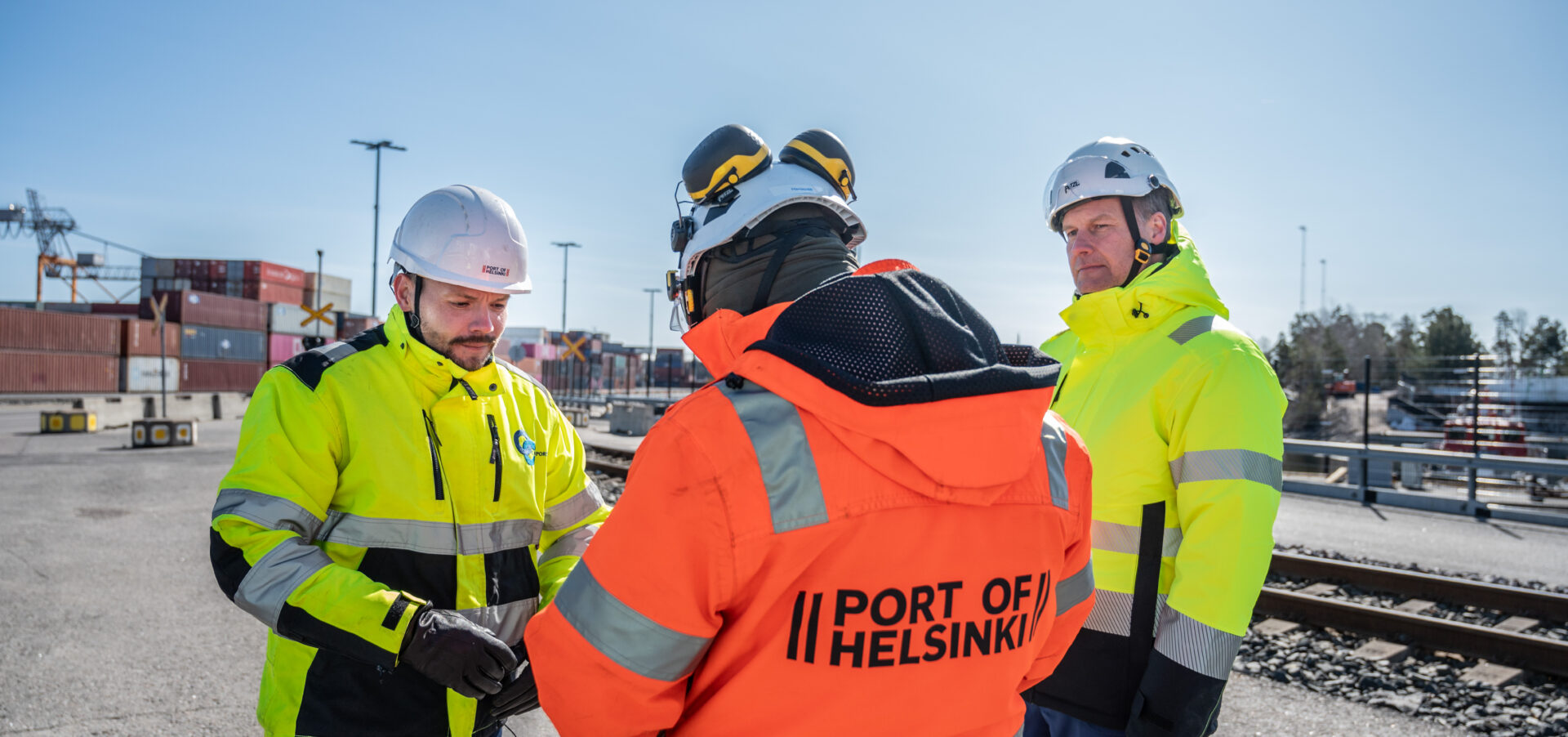
Agents are multi-skilled sea freight experts
A ship agent represents a foreign shipping company’s vessel during port calls. Their work is as colourful as human life. “You could write a book of these stories,” say agents Ville Björk and Antti Nikula.
We made a port call to Vuosaari Harbour with Antti Nikula and Ville Björk of C & C Port Agency Finland Oy. Our destination is the container ship Nordic Istria, which is based in Madeira and flies under the Portuguese flag. The vessel sails from Gdańsk in Poland to Vuosaari and Kotka in Finland.
The ship’s captain, Joel Clavido, says that agents are always welcome guests, as they lighten the crew’s workload.
“Agents act as a kind of bridge. They know all about what you can and can’t do at the port, and pass this information on to the captain and crew. So we’re well informed even before we arrive in port,” says Clavido.
“It’s all in the hands of the agents. They order a pilot when the ship leaves port, and handle customs, clearance and other formalities.
There are three officers on the bridge in addition to Clavido: First Officer Bonie Locading, Second Officer Fritz Raymart Magcale and Third Officer Ahmed Radwan.
The most labour-intensive task is clearance, that is, all the paperwork that is legally required when a ship makes a port call. In practice, the agent notifies the pilot, customs, port, tugs and stevedores of the ship’s arrival. The agent’s duties also include providing the necessary documentation about the vessel and its cargo to both the port and the authorities.
Agents need good people skills
Those entering the industry often have a background as a sea captain or maritime logistics engineer. A good basic education is useful, but you also need experience to build up your expertise.
“An agent can get by with a good knowledge of trade, shipping and port operations. Any languages you know in addition to Finnish are a plus, although you can manage with just English. An agent must be able to react quickly to a variety of situations,” says Nikula.
Björk says that it’s vital for an agent to be able to interpret the needs arising from the client’s commission.
“An agent must have good people skills and be able to get on well with all kinds of operators and stakeholders. Agents must be able to successfully handle all of the elements that make up a port call. Which is why the onboarding period for new employees is fairly long.”
“A good ship agent can be recognised by their ability to react to a situation before it arises. A port call needs to be as cost-effective as possible, and we work towards it several days before the ship arrives in port,” says Björk.
There are an estimated 1200 ship agent companies worldwide.
Cultural differences have little impact on an agent’s work.
“Shipping has always been an international operation with well-established standards. English has become its working language, and its concepts and laws are international. You also need to be proactive to succeed in this job,” says Nikula.
“Shipping companies appreciate the fact that we can warn them in advance – if a port is congested, for instance.”
Facing the fundamentals of life onboard ship
Sailors can remain onboard for anything from a few weeks to a year. All kinds of things can happen during that time. People fall ill and doctors may need to visit several times a week.
“If there’s been an accident, we sometimes have to call an ambulance, and the police may also be required for all kinds of reasons. There have been several deaths over the years as well,” says Nikula.
Agents are kept particularly busy with crew changeovers. New crews arrive and the old ones fly home. Illness can also cause extra work. Medical care is provided, starting with basic dental care.
“The pandemic was a challenging time. Finland was one of the few countries in northern Europe that allowed the free movement of crews. Yet this caused plenty of work for us. When a new crew was to come aboard, they were first flown to Finland about a week before the ship arrived. The crew members were tested a couple of times during that week, and stayed in their own facilities.
“One case has stuck in mind: a sailor who went off into the city on his own decided to stay in Finland permanently after finding the love of his life. He could, of course, have told his employer and agent about it, but he was never seen again. Apparently, he’s still living happily on some farm to this day,” says Nikula, laughing.
New Nemo system to streamline the sector
A new vessel reporting system called Nemo will be introduced at the beginning of 2026. It will replace Finland’s existing nationwide system, PortNet, which is used to submit port call notifications to Customs and the Border Guard.
“Nemo is a first step towards a common European model for port call notifications. If a vessel in the Baltic Sea sends a crew list to the system, it will also be sent to us in Finland in the same format. Nemo will harmonise port call notifications within Europe,” says Björk.
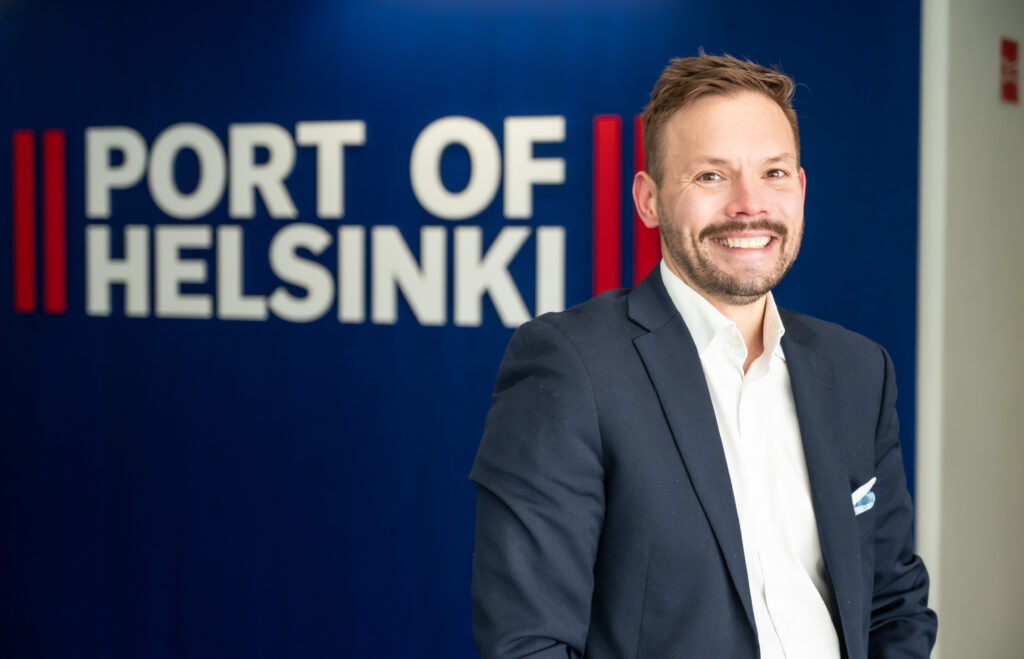
“Port call notifications will hopefully remain in Finnish hands due to the regulations surrounding fairway dues. We have many factors that cannot be replicated at EU level. Skills and services are required in Finland. It can’t be done elsewhere in the world.”
Between port and shipping company
Member companies of Shipbrokers Finland provide contacts with foreign operators that are very important for Finland’s security of supply. Around 70 per cent of all sea freight is carried by foreign vessels, and almost all of it is container freight.
C & C Port Agency Finland Oy is celebrating its 25th anniversary this year. It is an independent Finnish operator.
“We’re an independent ‘third party’. Unlike some ship agent companies operating in Finland, we don’t act as an extension of a stevedoring company or other port operator,” says Björk.
“We have good relations with all Finnish ports. We’re in daily contact with our port liaisons, and plan port calls together. There can be major differences between ports, so we act as links between the ports and the shipping companies.
Shipping companies want to fit as many voyages as possible into the year.
“One thing that agents must keep in mind at all times is that port calls shouldn’t take too long. At best, loading and unloading will just be quick stop-offs. Ships can spend anything from a few hours to a whole week in port.
A bulk carrier may take a week to load and unload its cargo in port – and even longer if the cargo is rain sensitive. Some oil tankers can blow out their cargo and return to sea in six hours.
“While contracts for tramp shipping may only cover a single visit, those for international cruise ships can be multi-annual. We’ve already made some reservations for 2028,” says Björk.
